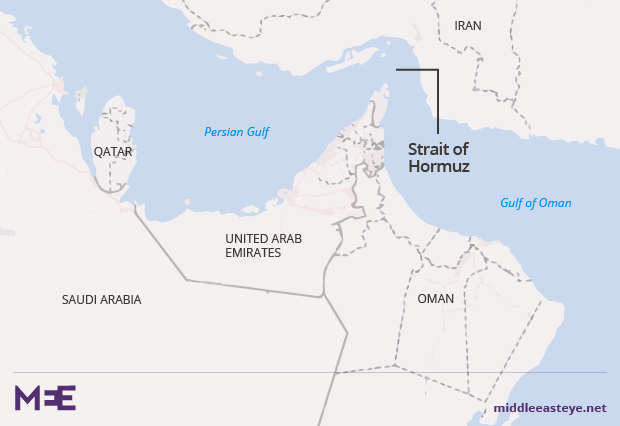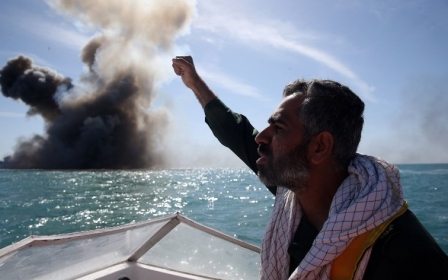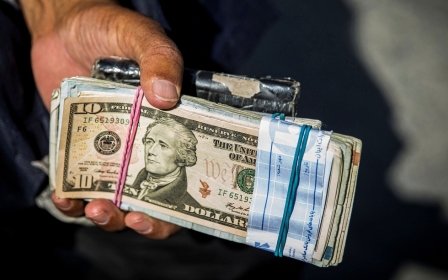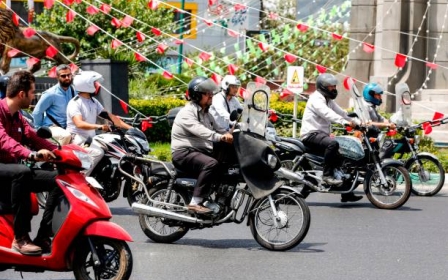Iranians caught between scepticism and hope after Trump’s offer of talks
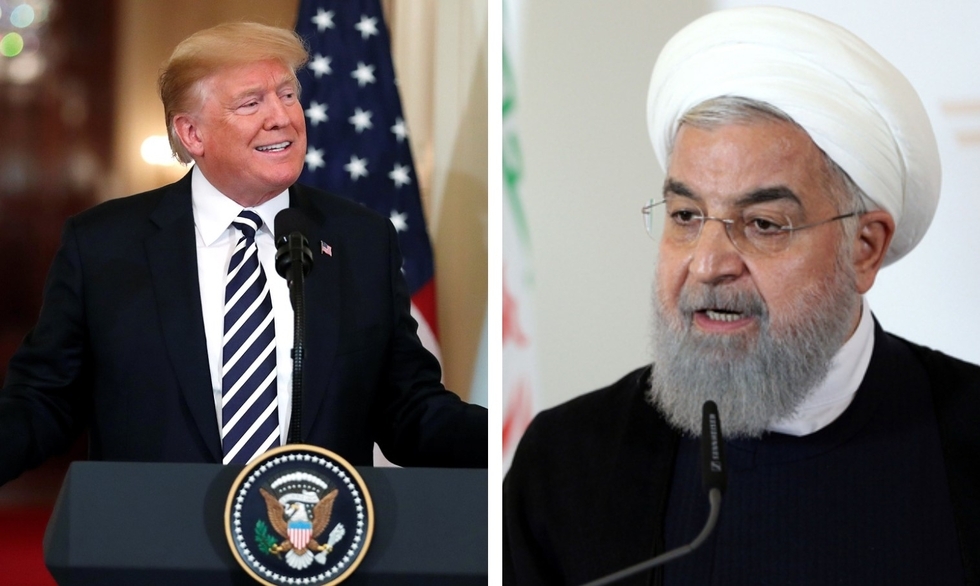
TEHRAN - It’s a strategy straight out of Donald Trump’s diplomatic playbook – ratchet up rhetoric and then offer to meet the adversary.
Yet while Trump’s technique seems to have got North Korea’s Kim Jong Un to the table, his latest surprise offer to meet Iranian President Hassan Rouhani has got tongues wagging in Iran, with the country’s citizens torn between skepticism and hope.
The first official reaction to Trump’s statement, which came just after 11 pm on Monday in Iran, was provided by Hamid Aboutalebi, one of Rouhani’s advisors, who poured cold water on the proposal.
“Those who believe in dialogue as a way of resolving the disagreements in the civilised societies should [be committed] to its tools: respecting the great nation of Iran, reducing hostilities, and a US return to the JCPOA [nuclear agreement],” he tweeted on Tuesday.
The head of the powerful Revolutionary Guards dismissed Trump's tentative offer, saying the Islamic Republic was not North Korea.
"Mr Trump, Iran is not North Korea [and] won’t give a positive answer to your meeting request," said General Aziz Jafari, adding, "You should know that the Iranian people will never allow their officials to meet and negotiate with the Great Satan."
He added: "You should know that this is a dream that won’t [come true] until the end of your presidency, and even the next US president won’t also see that realised."
Nevertheless, the mere possibility that tensions between the two countries could be reduced immediately had a positive effect on the value of Iran’s ailing rial.
According to local media, the rial was traded at 100,800 to the dollar on Tuesday, while a dollar was worth more than 113,00 rials the day before.
With this in mind, Hossein Selahvarzi, vice president of Iran’s Chamber of Commerce, tweeted: “Trump’s offer to meet and negotiate [with Rouhani] would probably have a positive impact on the market. A prudent reaction and answer from Rouhani would decrease and control the turbulent [situation] of the market.”
Politically divided
As for Iran’s various political camps, opinions are split.
Iranian conservatives have always viewed Washington and its actions with pessimism, and were not about to stop with Trump’s latest outburst.
Valiollah Nanva-Kenari, a conservative MP, was quick to say the US should renege on its pledge to pull out of the landmark 2015 agreement relieving sanctions in return for Iran curbing its nuclear programme.
“To prove his claim, Trump should at first implement [the US] commitments under the JCPOA. If Trump really wants to negotiate with Iran, he then should honour his commitments in the first place,” he said.
Iranian hardliners, however, have characteristically taken a harder line.
The semi-official Fars news agency, often seen as a hardliner mouthpiece, poured scorn on Trump’s offer.
“Trump is saying that he is willing to negotiate without any precondition, [but] this is a complete lie as Mike Pompeo, the US secretary of state, has announced the US conditions before,” it said.
Trump retreated and said he has no conditions… Yes, resistance always works out
- Ali Rajabi, hardline journalist
Describing Trump as an “American merchant and gambler,” the news agency added: “Reviewing the 12 conditions or demands of Pompeo indicates that [Trump] not only seeks not to negotiate from an equal position, but he also pursues [the plan of] Iran’s surrender.”
Fars then argued that Trump wants Iran to leave the “axis of resistance” in the region, referring to an alliance of countries and groups that are anti-Israel and western intervention.
Meanwhile, a number of hardliners took the opinion that Trump has retreated from his previous 12 conditions, viewing the president’s comments as a victory for Tehran.
Ali Rajabi, a hardline journalist at conservative Mehr News Agency, pointed to Iran’s threat to close the Straight of Hormuz - through which much of the world's oil supply passes - and Rouhani’s refusal to bow to American demands, saying: “Trump retreated and said he has no conditions… Yes, resistance always works out.”
As for Iran’s reformists, Trump’s offer seemed too good to pass up.Mostafa Tajzade, a well-known reformist activist, tweeted: “If I were in Rouhani’s shoes, I would have announced that despite not having confidence in Trump for not honouring his country’s commitments, I’m ready to talk to him on the margins of the UN General Assembly in order to reach a sustainable peace over all the issues, namely the necessity of the change of the US’ destabilising behaviour in the Middle East and its past meddling in Iran.”
Similarly, Ali Shakouri-Rad, secretary-general of the Union of Islamic Iran People reformist party, said any answer should be based solely on Iran’s national interest.
“Now that the US secretary of state has set a condition for negotiation, it is good if [Iranian Foreign Minister Javad] Zarif offers to negotiate with Pompeo at any time and in any place without any condition,” he added.
A chance for peace?
The most revealing comments, however, come from those close to the top echelons of Iranian power.
The most direct and important reaction so far has come from moderate Ali-Akbar Nategh Nouri, a former high-ranking member of the supreme leader’s office.
Nategh Nouri, who has also served as parliament speaker, said: “In the first place, we shouldn’t refuse the negotiation offer and state that he is damn wrong. We should think about it, and we shouldn’t act hurriedly.”
He added: “We also shouldn’t be excited, because [Trump] may take advantage of it, and he may have wanted to test us.”
Nategh Nouri also asked the Supreme National Security Council to discuss Trump’s suggestion.
Furthermore, Heshmatollah Falahatpishe, the moderate chairman of Iran’s parliamentary foreign policy commission, took a reconciliatory tone, saying that establishing a “hotline” between Iran and the US is necessary, as it would prevent more crises arising between the two countries.
“Third countries have fomented hostility between Iran and America and they are taking advantage of this,” said Falahatpishe.
“As long as the Americans bring up the issue of negotiation while they have been taking a bullying position, there won’t practically be any talks.”
However, Hamid Aboutalebi, an adviser to the Iranian president, insisted Tehran sees a US return to the JCPOA as a precondition to a new round of talks.
Oman mediation
One key third country that may be playing a conciliatory role is Oman.
Iranian media have speculated that the Omani government is mediating between Tehran and Washington, and Oman’s Foreign Minister Yusuf bin Alawi bin Abdullah will reportedly head to Tehran on 3 August.
Adding to the speculation, bin Alawi is currently in Washington, while Zarif paid a visit to Muscat on 2 July.
Nategh Nouri has noted that Oman was key in the negotiations surrounding the 2015 nuclear agreement, so a resumption of this role is entirely possible.
However, Bahram Qassemi, Iran's foreign ministry spokesperson, denied the reports about bin Alawi's trip to Tehran.
Backing down
According to analysts, one issue may be a popular perception that dialogue may resemble weakness from Iran’s leaders.
“There is a wrong perception of negotiations in Iran, and based on that, negotiations are considered as compromise. This is not correct as negotiation is a tool for resolving the disputes through dialogue, not war,” Morteza Nourmohamamdi, a professor of international relations at the University of Allame Tabatabi, told Middle East Eye.
“The two sides have set preconditions previously, but what Trump has said should be studied carefully,” he added.
“Trump may have wanted to portray himself as a defender of liberal values in America and Iran by showing that he doesn’t intend to start a war. He probably wants to throw the ball into Iran’s court and say later ‘I did offer to talk but Iran didn’t accept’.”
According to Rasool Hosseini, a foreign policy expert, Iran isn’t sure about Trump’s motivations.
Apparently, the US is inclined to depict itself as in favour of talks, and show Iran as the country which avoids resolving the disputes through peaceful tools
- Rasool Hosseini, foreign policy expert
“Apparently, the US is inclined to depict itself as in favour of talks, and show Iran as the country which avoids resolving the disputes through peaceful tools,” he told MEE.
“If so, the situation would be harder for Iran, and Tehran should now respond cautiously.
“For sure, any talks, even prolonged ones, could see major achievements for both sides and can reduce the tensions,” he added.
Nourmohamamdi, however, believes the two sides have some way to go before they are on the same page regarding what such talks would look like.
“The US wants to make a deal about everything, but Iran seeks to reach an agreement over a number of specific issues, and it doesn’t want to talk about missiles or the nuclear issue,” he said.
Either way, it’s far more likely that the two countries would begin negotiations at a far less senior level than the two presidents.
“Currently, a meeting between the Iranian and US presidents isn’t possible, but such talks can take place at lower levels, for example between Zarif and Pompeo,” Nosratollah Tajik, a former Iranian ambassador to Jordan, told MEE.
“Relations between Iran and the US have become complicated following the US exiting the nuclear deal. Trump thinks Iran has been weakened. Therefore, under such conditions speaking of a meeting between Rouhani and Trump is too optimistic.”
For Tajik, the priority should be lowering the sky-high tensions between Washington and Tehran, before serious talks take place.
“We should reduce the tensions in our foreign policy to zero percent,” he said.
“To reach this goal, Iran can go forward with this plan in two ways: first is the public level, and the second way, which is the secret level, is talking to Washington through mediatory tools and then face-to-face interactions.”
New MEE newsletter: Jerusalem Dispatch
Sign up to get the latest insights and analysis on Israel-Palestine, alongside Turkey Unpacked and other MEE newsletters
Middle East Eye delivers independent and unrivalled coverage and analysis of the Middle East, North Africa and beyond. To learn more about republishing this content and the associated fees, please fill out this form. More about MEE can be found here.


